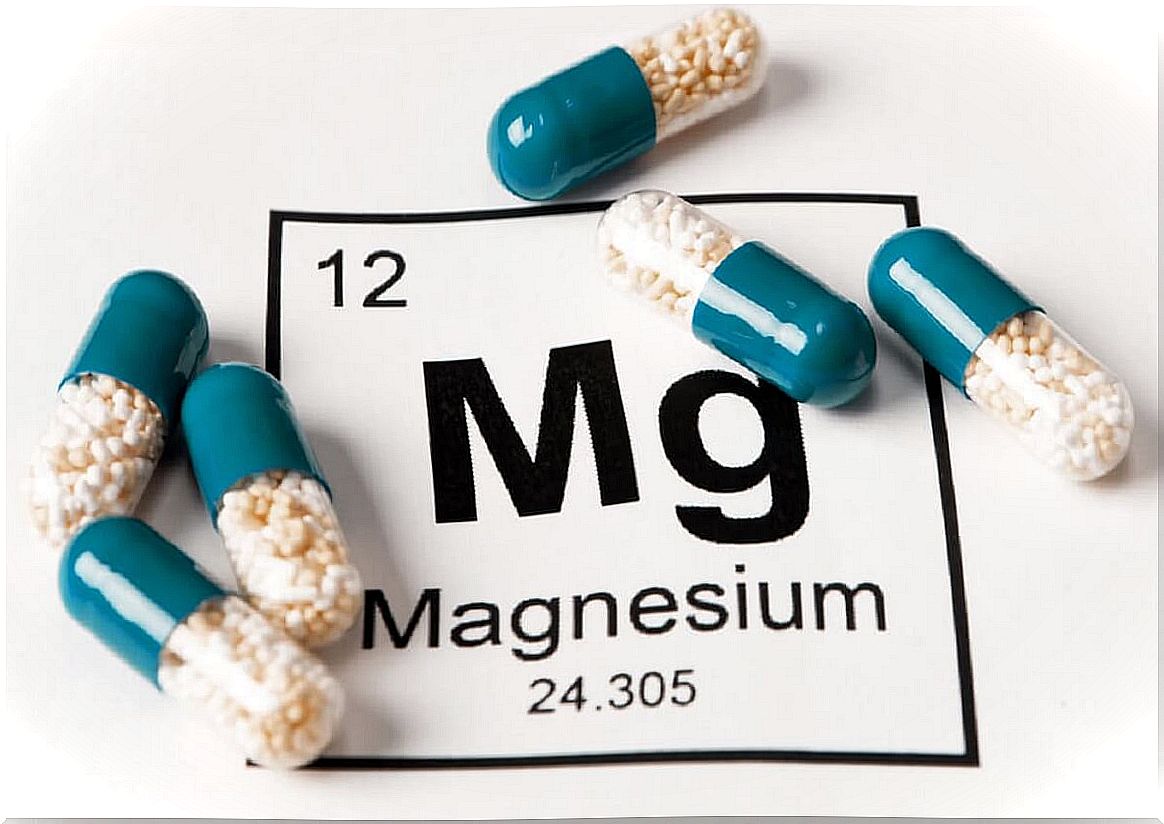What Are The Symptoms Of A Lack Of Magnesium?
Although the lack of magnesium is not revealed by analytics in the early stages, if a deficiency of this nutrient is diagnosed we can experience frequent cramps, headaches or hypertension.

What is magnesium and what is it for? What symptoms could a lack of magnesium produce in the body? Is it necessary to include a supplement in the diet to prevent health problems? These and some more questions we will answer below.
Magnesium is an essential mineral for the health of the human body. It fulfills several very important functions in the body, such as: regulating the function of the entire muscular apparatus and the nervous system, as well as blood sugar levels and blood pressure. It is also essential for the formation of protein, bone mass and DNA, as outlined in the data sheet of the National Institutes of Health.
According to NIH experts “in the short term, insufficient magnesium intake does not produce obvious symptoms.” Therefore, the lack of magnesium is not usually diagnosed early, since it is not reflected in the blood test.
Symptoms of a lack of magnesium

Kidney problems are one of the possible signs of a lack of magnesium. This is because “when healthy people do not get enough magnesium, the kidneys help retain magnesium by limiting the amount that is excreted in the urine.”
Loss of appetite, nausea, vomiting, and feelings of fatigue and weakness can all be symptoms of a magnesium deficiency. Then, in extreme cases, it could also cause muscle cramps, numbness, tingling, seizures, heart rhythm disturbances, mood disturbances.
The people most likely to have a magnesium deficiency are the elderly, as well as those who suffer from:
- Crohn’s disease.
- Type 2 diabetes mellitus .
- Celiac disease and other gastrointestinal problems.
If we present at least two of these symptoms mentioned above, it would be advisable to make an appointment with the doctor for a check-up. In the consultation, we can tell the professional if it is necessary for us to take a magnesium supplement.
Positive effects of magnesium

Clearly, its deficit is negative, but a normal balance of this mineral brings us many positive health effects, such as:
- Relieves pain.
- Strengthens the heart muscle.
- Reduces epileptic seizures.
- Stops prostatic inflammation.
- Helps control cases of asthma and bronchitis.
- It helps to have a better rest at night.
- Increases insulin secretion, promoting sugar metabolism.
- Balances the nervous system: essential in cases of stress, depression and anxiety.
- Relaxes and makes the muscles more flexible: magnesium is essential for athletes.
- It contributes to the creation of collagen, essential for the skeleton, tendons and cartilage.
- It helps to absorb and fix calcium, so in cases of osteoporosis and cavities it will be advisable to take magnesium, especially if we are already taking calcium supplements, so that they are balanced. An excess and abuse of calcium alone can be harmful to health.
Natural sources of magnesium

There is a wide variety of foods that contain this mineral and will help us to make up for its deficit. Such as:
- Fish.
- Seeds.
- Dandelion.
- Wheat germ.
- Sprouted alfalfa.
- Beer yeast.
- Vegetables: potato and pumpkin.
- Legumes: peas, lentils.
- Cereal: brown rice, millet, oatmeal.
- Nuts: almonds, cashews, hazelnuts, walnuts.
- Fruits : banana, apricot, avocado, peach, plum, apple.
- Dark green leafy vegetables: chard, lettuce, spinach, parsley.
- Cocoa – Pure dark chocolate has almost 500 milligrams of magnesium in 100 grams.
We can prepare smoothies or smoothies with green leaves; apple, banana and sprouted alfalfa, and sweeten them with a little honey. If we drink these drinks instead of soft drinks and industrial drinks, we will increase our well-being.
The advice of naturists
Naturopaths indicate that it would be advisable to take 300 milligrams of magnesium each day, orally, divided into three doses, so that the body can absorb them correctly.
On the other hand, they comment that if we want to achieve immediate relaxation effects and at the same time revitalize the body, we can prepare baths with magnesium sulfate, also known as Epsom salts. These baths can bring great relief. We will put 100 grams in the hot water of the bathtub and we will do a bath of about thirty minutes.
Finally, naturopaths indicate that before taking any supplement it is best to consult with your doctor, especially if you suffer from a chronic disease or are taking medication.









